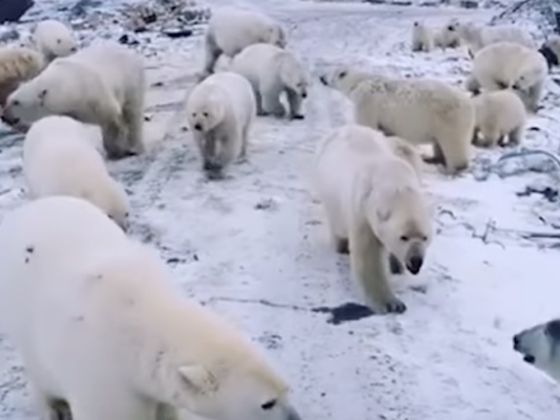We tend to think of polar bears as beautiful but elusive animals that very few of us will be lucky enough to ever see in person. But for the people of Novaya Zemlya islands, a remote Arctic archipelago in Russia, polar bears are not mysterious enough these days.
Dozens of bears have besieged the islands, which are home to just 3,000 people. Belushya Guba, the archipelago’s main settlement, has declared a state of emergency after spotting 52 bears and reporting incidents of bears chasing people, looking for food in dump sites, and entering public and residential buildings.
